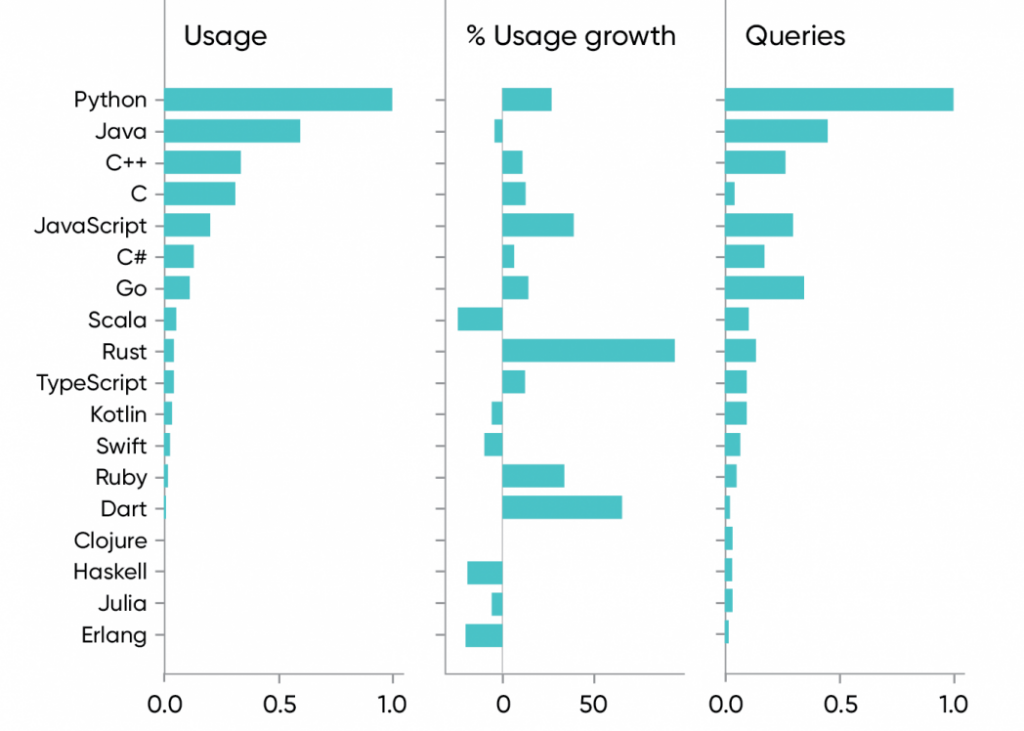
Rust, the world’s “most loved” programming language, now has its own independent foundation.
The language was originally designed by Graydon Hoare at Mozilla Research and has ranked “most loved” in Stack Overflow’s annual developer survey for the past five years.
In a blog post, the Rust Foundation wrote:
“Mozilla, the original home of the Rust project, has transferred all trademark and infrastructure assets, including the crates.io package registry, to the Rust Foundation.
We’re filled with gratitude for Mozilla whose thoughtful incubation of the project from its inception as a research project in 2010, to establishing independent governance with the 1.0 release in 2015, has led us to this moment, as we set out as a fully independent organization.
Without their support, we wouldn’t find ourselves in the position we do today.”
The syntax of Rust is similar to C and C++ and shares some control flow keywords like ‘if’, ‘else’, ‘while’, and ‘for’. However, the language has increased memory safety and its code-validating procedure is much stricter than in C++ which helps to avoid problems.
Back in 2017, Mozilla replaced 160,000 lines of C++ with 85,000 lines of Rust to boost the performance of its browser engine Servo.
In addition to winning the hearts of developers, Rust has consistently been among the fastest-growing languages (even if its overall usage is currently still relatively low.)
Last month, education giant O’Reilly released data which highlighted the usage of various programming languages and Rust led the pack in growth:

Five major companies are lending their support to the Rust Foundation: Microsoft, Huawei, Google, AWS, and, of course, Mozilla.
Nell Shamrell-Harrington, Principal Software Engineer at Microsoft and Board Director at the Rust Foundation, wrote in a post:
“Open source software and languages are of critical importance both to Microsoft and to the entire tech industry. This is especially true for systems programming languages like Rust.
As Rust usage in Microsoft grows, we know it is not enough to only use it as open-source software.”
In addition to providing considerable financial backing to the foundation, the companies will also help promote and drive the use of Rust “as an enterprise production-ready technology.”
Learn more about the Rust Foundation and how to participate here.
Interested in hearing industry leaders discuss subjects like this? Attend the co-located 5G Expo, IoT Tech Expo, Blockchain Expo, AI & Big Data Expo, and Cyber Security & Cloud Expo World Series with upcoming events in Silicon Valley, London, and Amsterdam.







